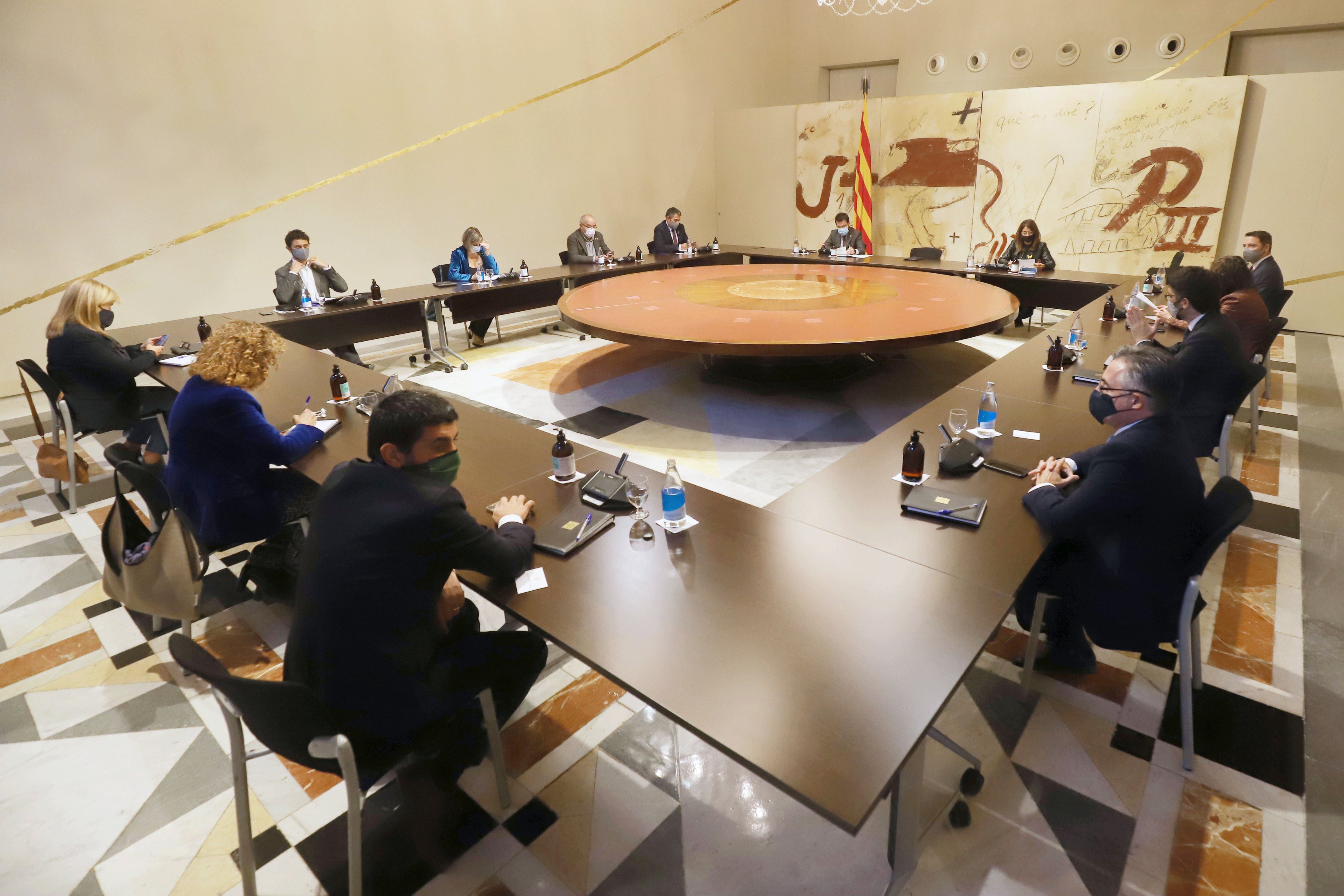The Catalan government has decided in a special cabinet meeting this Friday evening to request the declaration of a state of alarm in Catalonia in order to decree a nightly curfew. It did so hours after it became known that other territories such as the Basque Country had demanded this measure in response to the expanding second wave of the corononavirus pandemic and amid rumours of differences between the Catalan government partners over the decisions to be taken.
Catalan vice-president, Pere Aragonès, appeared on Friday evening at a press conference to announce the decision and to explain that the state of alarm - the centrally-granted emergency status which would be required in order to give legal coverage to a curfew - is to be applied with a "single command under the Catalan Government" with the aim of having "all the tools and guarantees to mobilize resources and respond to the needs of the health crisis". The vice president, who is acting president, has confirmed that the first measure to be taken by the government will be to temporarily limit nighttime mobility.
Catalan vice president Pere Aragonès: "The Catalan government will ask the Spanish administration for the state of alarm to be declared in response to how the pandemic is developing"
Aragonés said that he had had various conversations with the Spanish PM, Pedro Sánchez, and his health minister, Salvador Illa, to ensure that the management of the command would be in the hands of Catalonia, and that he also spoke with the Basque lehendakari, Iñigo Urkullu, who this afternoon had called for a state of alarm for the Basque Country.
Extremely serious
"On principle, many of us don't like to refer to use this plan as a 'curfew' but rather to talk about temporarily reducing nighttime mobility and avoiding unnecessary social exchanges," said the Catalan vice president, stressing that this measure had to be taken in the face of the acceleratied worsening of the Covid-19 data in Catalonia, which makes the situation "extremely serious". The EPG outbreak risk for Catalonia, which is regarded as high when it exceeds 100, has now reached 635.
Aragonés stated that the declaration of the state of alarm will also have to be used in the next few days when the Government anticipates that restrictive measures of mobility will have to be adopted and that they will have to be imposed with "maximum agility and speed".
Pere Aragonès: "The objective is to temporarily limit nighttime social life"
Although the JxCat members of the Catalan coalition government have pointed out that the imposition of a curfew could enable the easing of restrictions affecting bars and restaurants, Aragonés avoided linking the two issues and assured that the limitations on the hospitality sector will remain in force until next Friday as was planned.
Request made to Sánchez government
The Catalan presidency minister, Meritxell Budó, said that the request to declare a state of alarm had already been communicated to the Spanish government in order to be able to apply the measures as soon as possible, and added out that if, as expected , it is quickly approved by the Spanish cabinet, Catalonia's Procicat emergency coordination committee could meet tomorrow to specify the conditions of the curfew, which the government today did not want to advance.
Catalan minister Meritxell Budó: "We mustn't see the type of scenes we saw last weekend" - referring to the large numbers of people who filled Catalonia outdoor leisure areas, such as Montseny.
The Catalan interior ministry is, however, already working on the details of the planned curfew and is considering applying it from 11pm to 6 in the morning, in order to allow evening cultural activities to continue. This proposal was also conveyed to the Catalan parliamentary parties at a meeting held after the Catalan cabinet meeting to let them know the decisions taken.
Meeting with Puigdemont
Just before today's special cabinet meeting, JxCat members of the government met with their party leadership, including Carles Puigdemont who took part by internet connection. JxCat asserted that, in the fight against the pandemic, the Catalan government has lost the initiative it had taken during the presidency of Quim Torra, and the party agreed to strongly back the new government measures in the cabinet meeting. In fact, the uneasiness among JxCat had become evident through ministers Miquel Samper and Ramon Tremosa publicly calling for the curfew, and linking it to the need to reverse measures such as the closure of bars and restaurants.
However, when asked about this, Budó stressed that the key point was the decision having finally been taken by the government, based on health criteria.

